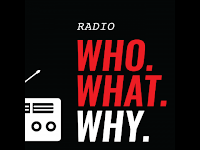 We think that politics might actually change the world for better or for worse. It probably won't. It's certainly more likely that climate change, weather, and rising sea levels will have a far more profound impact. The recent UN report on climate indicated that we could be facing existential risks within 20 years. So what is the world to do?
We think that politics might actually change the world for better or for worse. It probably won't. It's certainly more likely that climate change, weather, and rising sea levels will have a far more profound impact. The recent UN report on climate indicated that we could be facing existential risks within 20 years. So what is the world to do? Jeff Goodell, a contributing editor at Rolling Stone, takes us deep into not the debate but the story of the particle reality in The Water Will Come: Rising Seas, Sinking Cities, and the Remaking of the Civilized World
My WhoWhatWhy.org conversation with Jeff Goodell:




























